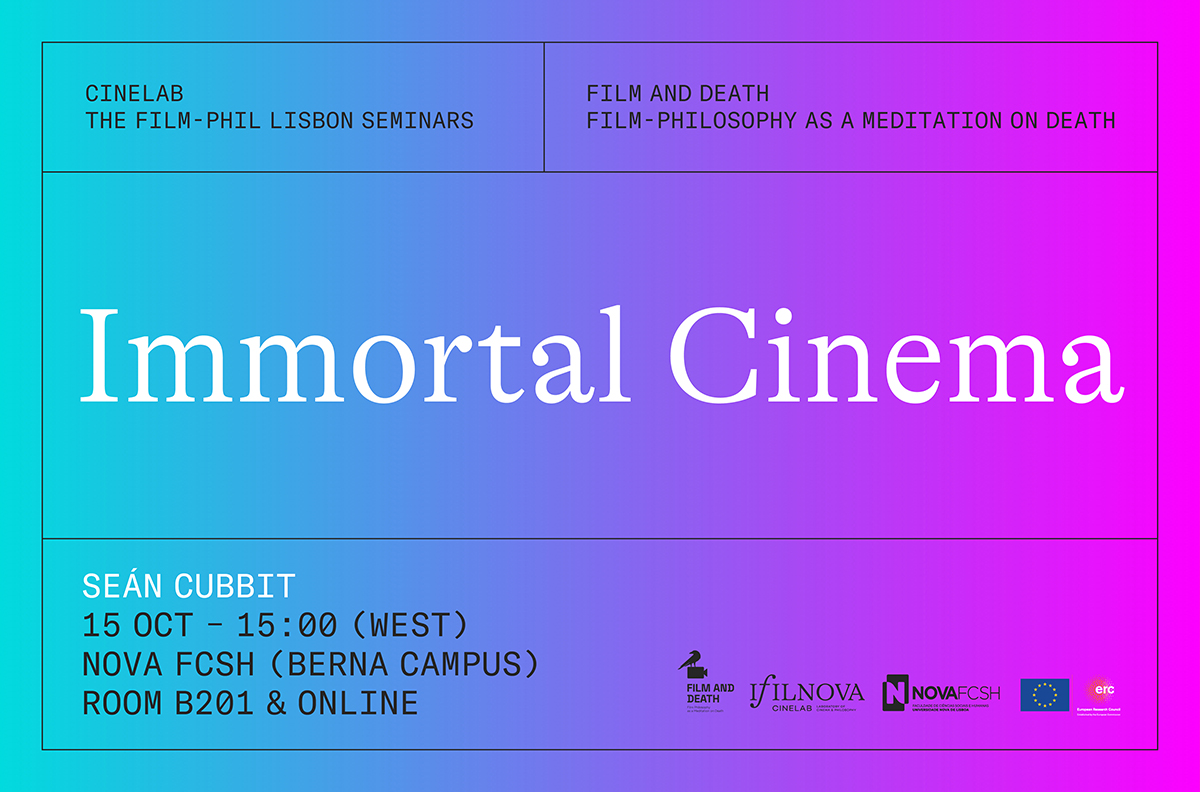CineLab • Seminário
The Film-Phil Lisbon Seminars: Seán Cubbit
Immortal cinema

O próximo seminário Film-Phil de Lisboa estará a cargo de Seán Cubbit (Universidade de Melbourne), que falará sobre “Immortal cinema”. A sessão será em inglês e terá lugar no dia 15 de outubro de 2025, às 15:00 WEST, na sala B201 da NOVA FCSH (Av. de Berna, 26 C) e online, via Microsoft Teams.
A série de seminários faz parte do projeto ERC “CINEMA E MORTE — A Filosofia do Cinema como uma Meditação sobre a Morte”. O seminário será híbrido. Para receber mais informações sobre como participar na reunião online, é obrigatório registar-se aqui.
Mais informações disponíveis em inglês.
Financiamento
Financiado pela União Europeia (ERC, FILM AND DEATH, 101088956). Os pontos de vista e opiniões expressos são, no entanto, apenas do(s) autor(es) e não refletem necessariamente os da União Europeia ou da Agência Executiva do Conselho Europeu de Investigação. Nem a União Europeia nem a autoridade concedente podem ser responsabilizadas por eles.
The Film-Phil Lisbon Seminars
Data
15/10/2025
Horário
15:00 – 17:00
Projetos de Investigação
Local
NOVA FCSH (Campus de Berna) – Torre B, Sala B201 & Online

